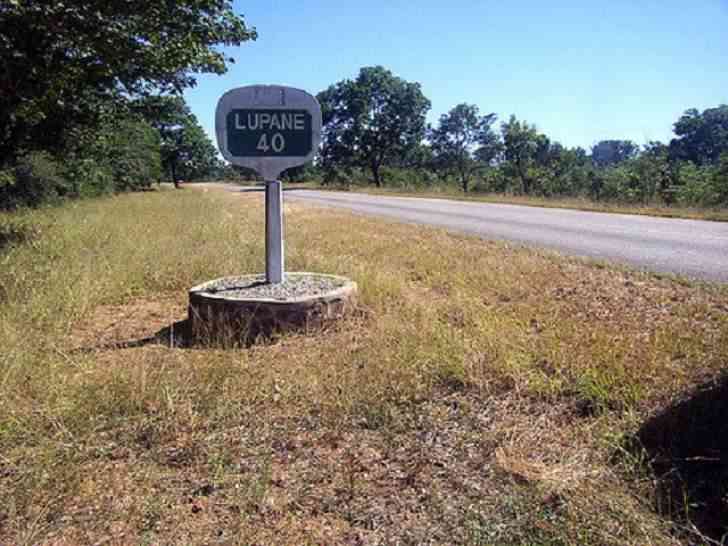
AN innovative lottery model “born” in Panama in the 1970s can be profitably introduced in Africa.
It could be the socioeconomic game-changer that Southern African countries desperately need.
The business was called FutuRico — a rich future, in English. Rewards were not just promised for the lucky few, but for every participant — even those who had not won anything in the semi-weekly prize drawing.
From the outside, it looks like a unique blend of entertainment, investment, and economic upliftment. Now, the man behind this initiative wants to bring it to Africa.
But with a significant twist. The people of Africa have to participate in the enterprise along with outside investors to make the programme work cohesively for the benefit of each country.
“FutuRico works like this: only a relatively small, but significant part of the price of the FutuRico lottery ticket goes into its prize pool. Some of the price also covers expenses,” said the President of the Los Angeles-based Harris/Ragan Management Group, Godfrey Harris.
The remainder is invested in the national economy through an independent investment company.
The tickets are actually self-adhesive stamps. When someone does not win, they do not throw
- Trophy hunting drives African lion into extinction
- Activists call for more female candidates
- Journalists close ranks on bodily autonomy and integrity
- Trophy hunting drives African lion into extinction
Keep Reading
their ticket away.
Instead, they save the stamps/tickets in a special folder. Once a specified number of stamps have been saved, players exchange them for shares in a mutual fund that invests in the country’s development.
Imagine losing in the draw — but nevertheless gaining a second chance to win a stake in the
shares of your country’s telephone, electricity, or banking sector?
The idea transformed Panama’s economic participation landscape. As citizens realised they could invest in their nation’s future while enjoying the anticipation and rewards of a lottery, FutuRico became the fastest-growing investment mechanism in the country.
The fund became one of the biggest buyers on the Panamanian stock exchange. Citizens could not only win cash prizes, but they also became shareholders in industries they once thought were beyond their reach.
They made money. At one stage the FutuRico accounts were yielding 50% more in profit for their holders than the same amount of money invested in national savings accounts maintained by the government.
Now, American entrepreneur Harris — the architect of FutuRico — believes Africa can replicate this success.
He also believes that the concept for a never lose casino would do as well here as it was originally designed for Malta — but an explanation of how the never lose casino works is the subject for another article.
“The FutuRico model can work anywhere,” Harris said an interview this month.
“But first, we need to know if leaders in Southern African countries are even willing to listen; we also need to know whether Africans with a few coins in their pockets want to convert what’s there into the chance to earn a lot more money for themselves and their countries.”
Harris is right to ask for the approval for the initiative by African leaders, so that it can work. His past attempts to pitch the FutuRico concept to countries like Eswatini were met with closed doors — or worse, paywalls.
“In Zimbabwe, some individuals were willing to help me get close to the ministers with the right portfolios and the President without asking for money,” he said.
“But in Eswatini, it quickly became about how much money I would pay just to get the idea heard.”
That, for Harris, was the dealbreaker. He wasn’t looking to buy influence. He was not looking to bring FutuRico back for himself.
He was looking for collaboration, a genuine desire to create wealth and opportunity for ordinary citizens.
“I want to work with people who care about the well-being of their citizens as much as they care about their own families,” Harris said. “But when I was told to pay large sums just for a meeting, I walked away.”
Yet Harris has not given up.
He still believes Southern Africa is fertile ground for FutuRico.
The region faces massive economic challenges - rising unemployment, chronic underinvestment, and over-reliance on donor funding that continues to shrink.
The threat of further reductions in donor funds still lingers, under President Donald Trump’s administration. But Southern Africa also has something valuable, millions of citizens eager for a chance to change their lives.
“What if people could take their spare change and turn it into investments in tourism, conservation, or national infrastructure?” Harris asked. “What if everyone had a direct stake in their country’s economic future?”
Harris believes the advent of mobile money and internet access makes the FutuRico model even more powerful today, than when it was first launched.
Digital platforms could change the cost structure, increase individual access, and make participation easy — even for remote, rural populations and people overseas.
He urges African governments to act now to see how all the elements of the FutuRico model mesh smoothly, with progressive economic development.
“We need business people who see value in overseeing this model,” Harris said. “Outright corruption, bureaucratic barriers, greedy gatekeepers, or outdated thinking should not block innovation. Business, in this case, means empowerment.”
Meanwhile, Harris is also calling on ordinary African citizens to speak up in support of initiatives that bring socioeconomic development to their countries and communities.
“If you think this idea could help your country,” Harris said, “demand that your leaders at least listen to a briefing.
“If they won’t listen, ask them why. What are they so afraid of?
“If it is losing their control of the flow of money that greases the wheels of commerce, perhaps they will come to realise that FutuRico offers them even more in the way of industrial entry and new business development.”
The FutuRico model offers more than hope — it offers a proven path to wealth creation and national pride.
Harris said in a continent too often forced to beg for aid, “here may be a rare opportunity for governments” to let people invest in themselves and shape a brighter future for their country and themselves.
- Koro is a Johannesburg-based international award-winning environmental journalist who writes independently on environmental and developmental issues in Africa.






